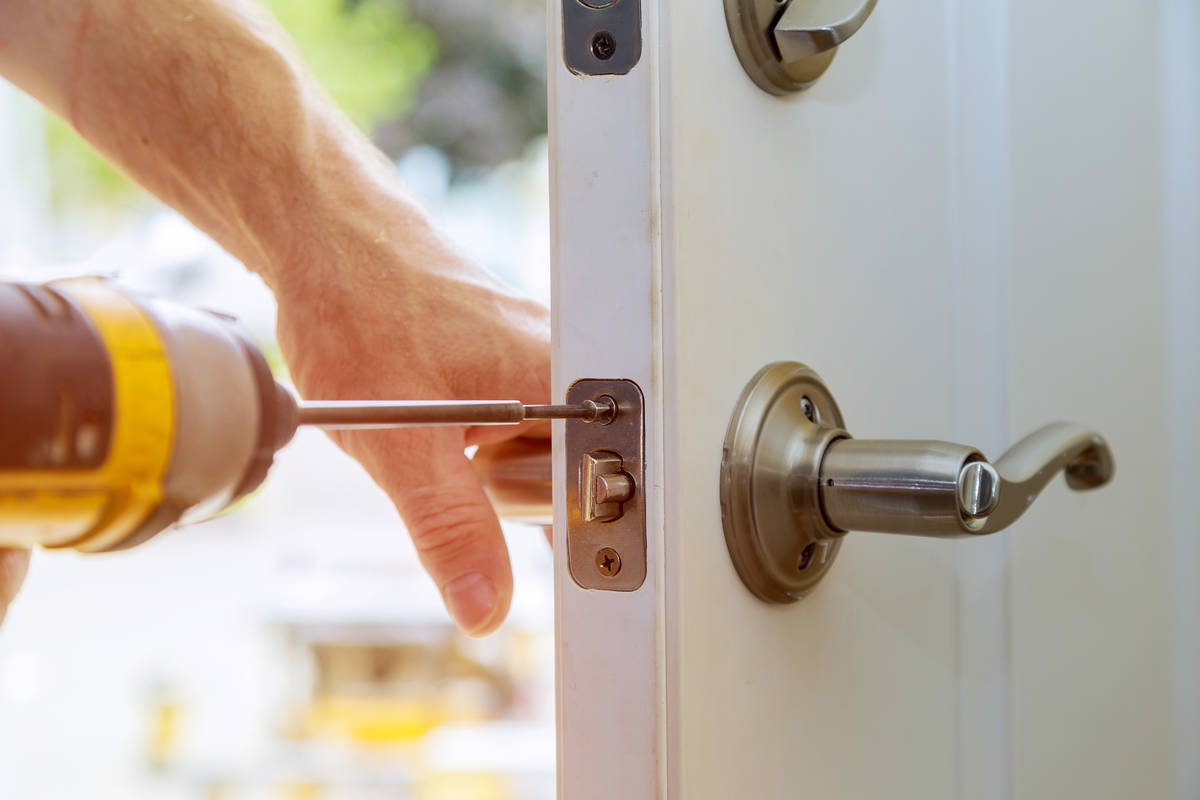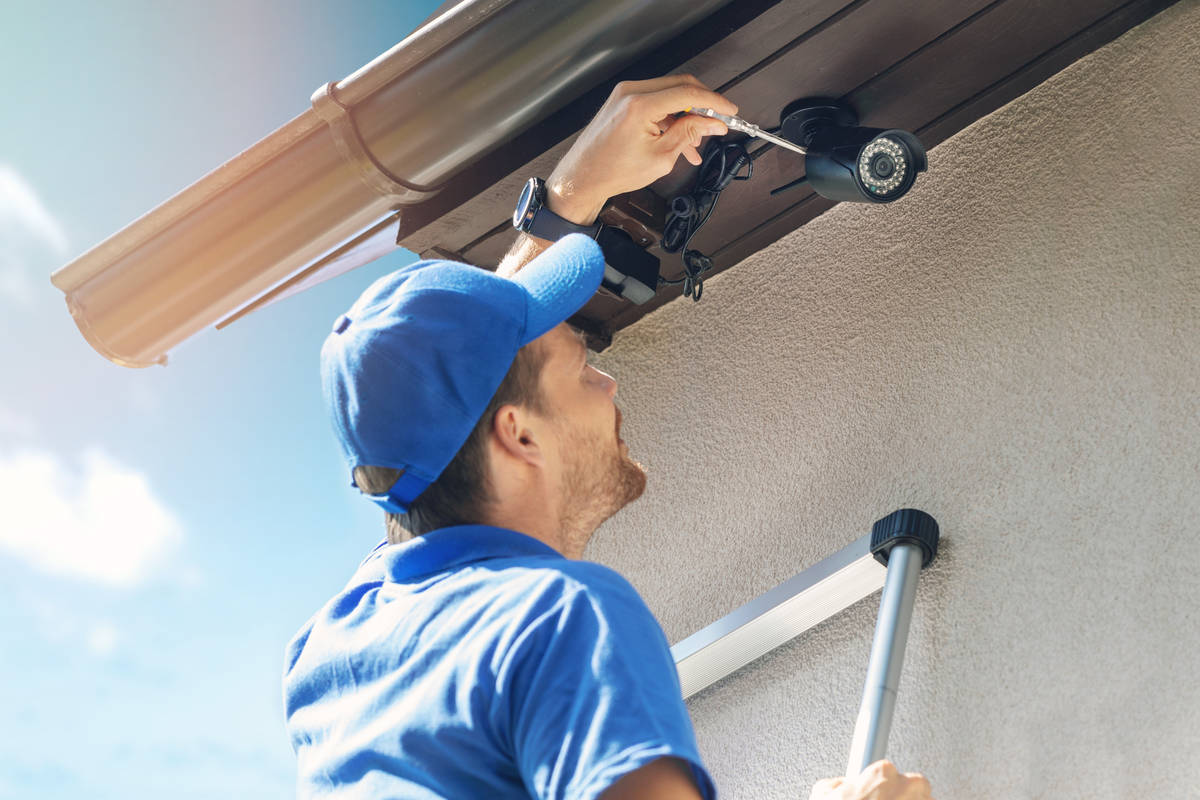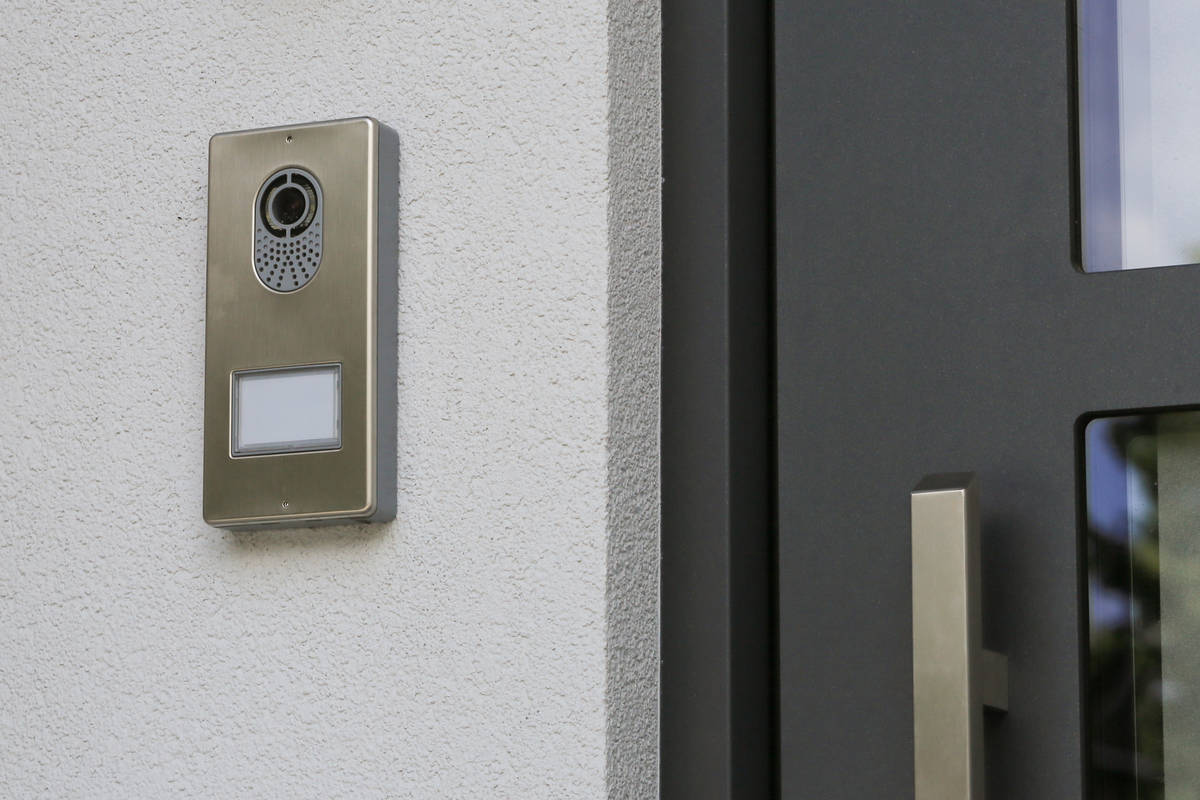Experts offer tips to keep your home secure
Today, news headlines covering rising crime rates are increasingly common in Las Vegas and just about any other metro area. With that, homeowners may start to wonder if there are ways to improve the security of their largest investment.
The good news is that there are a number of things you can do to keep your home safe and less desirable for any would-be intruder or burglar without breaking the bank. Here, experts share some simple, inexpensive home security tips that don’t take a lot of effort or money to implement.
Start with doors and windows
Improving the security of your home starts with fortifying your front door. We all hear about the importance of having a quality deadbolt lock, but there’s a little more to understand when it comes to the quality of the entire door lock components.
The point of failure for a lock is usually the strike plate or the small piece of metal screwed into the door frame where the actual bolt of your deadbolt lodges into. Oftentimes, this plate is held in place by two short screws only an inch long, sometimes even shorter. A strong kick to the door can cause the plate to fail for easy entrance into the home.
Invest in a stronger strike plate that requires four or six screws to anchor it. Then, buy 3-inch screws to anchor the plate, explains Chris McGoey, a Southern California crime expert witness who has analyzed thousands of crime scenes for homeowners and businesses.
“Those 3-inch wood screws can make all the difference in the world,” he said.
Fortifying windows is important, too, said Mike Johnston, chief security adviser for Boss Security Screens, a Las Vegas Valley-based window covering manufacturer. Johnston is also a former Henderson Police Department captain.
In addition to a quality lock and strike plate, he encourages homeowners to place a wood or metal bar in all sliding glass doors and windows. If you have a bigger budget, security window coverings are a deterrent as well.
“The No. 1 thing is that you don’t want to make it easy for anyone to enter the home,” Johnston emphasized.
Landscaping with crime prevention in mind
Johnston is certified in Crime Prevention Through Environmental Design by the National Institute of Crime Prevention. CPTED was created to make crime prevention part of the landscape design process. One of the key elements of CPTED is what Johnston calls the “2-foot, 6-foot rule,” meaning shrubs should be no taller than 2 feet off the ground and tree canopies should not hang lower than 6 feet.
“If you start to look at landscape design, you see how some people may invite thieves because you have so much coverage and are concealed, so the neighbors can’t see what’s going on,” he said.
Thorny bushes like roses near pathways can also be a deterrent, said Dak Kopec, an associate professor in UNLV’s School of Architecture. Larger rocks in desert landscaping, while they add thermal gain, are difficult to run across and are a good security choice.
Assess what passersby see
McGoey says it’s important not to leave visual enticements for anyone casing the area. One of those can be simply leaving your garage door open for long periods of time during the day. In these cases, the door from the garage into the home is usually unlocked as well. Even open windows on the front of the home can be an enticement.
“I’ve read thousands of police reports, and many invasions result with people just walking into an unlocked door,” McGoey said. “Make it a habit not to keep the garage door open any longer than it takes for you to use it, and open windows visible from the street shouldn’t be the first choice to ventilate the home.”
He also says piled-up fliers or newspapers near the door can be a sign no one is home. And if someone leaves a front porch light on all day and doesn’t have it on a timer to turn off during daylight hours, that can also lure thieves.
At the same time, giving the appearance of activity at your home can deter an intruder. When you’re home, having blinds open so that people can see you moving around inside during the day is good practice, Kopec noted.
Security plans, technology
Once you’ve secured access points, some homeowners create an overall security plan for the home. That can include making sure the home is well-lit, alternating lighting schedules, installing doorbells like the Ring system, which has cameras and allows you to see who’s at the front door on your phone, and even adding a popular Google Nest wireless security system or a home alarm service.
It’s important to view these strategies as “layers” that complement one another, said Johnston, and even the best technology only serves you well if you use it properly and maintain it. A maintenance plan can include:
Regularly trimming trees and shrubs to make sure your home is visible from the street.
Regularly testing alarm systems and technology components.
Having a system of checks in place when you leave the home for windows, doors and systems.
“If you don’t have maintenance, the yard can become overgrown, the cameras go down, it all weakens your safety plan,” Johnston added.
McGoey also recommends taking photos of items and keeping them, along with receipts, in one place so that in the event of a burglary you can properly identify stolen items. The experts offered several other simple practices to help with your home security plan.
Don’t open the door before looking through the peephole or confirming you know who is on the other side of it.
Talk to your children about potential scenarios and what to do if trouble arises. They know what to do in a fire drill at school, and they’ve heard of stranger danger. They should know to call 911 if something looks suspicious.
Meet your neighbors. Share schedules and take opportunities to water plants and take care of pets for one another when one of you is out of town.
Share information about the vendors you use with your neighbors so everyone can stay alert to suspicious vehicles in the area.
If you have an electronic lock requiring a code on your front door, change it every six months, Kopec added. Keeping the same code can leave a wear trail and allow someone to guess which code to enter.
And finally, be honest about the state of your neighborhood. If crime is increasing and your gut feeling is that the situation may not improve, it may be time to move, McGoey said.
“The best deterrent is to purchase a home in a ZIP code you know has less crime,” he added.
























